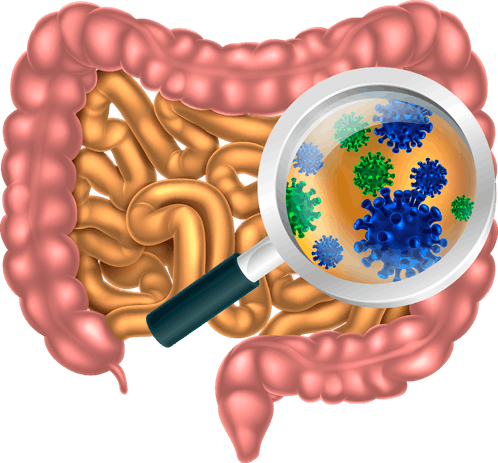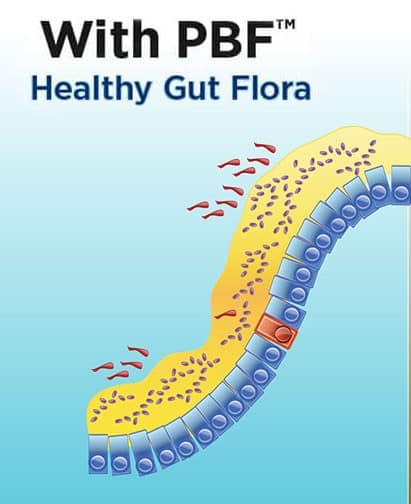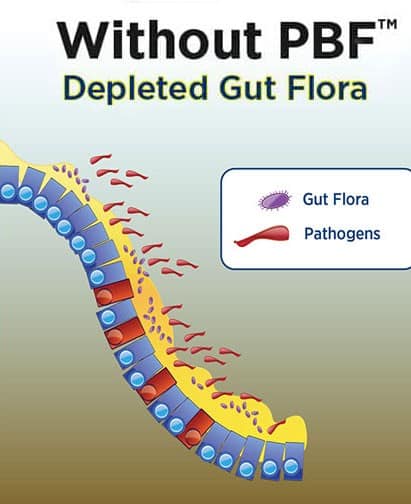How P.B.F. Prebiotic Balanced Fiber™ Works in Cat & Dog Food

The P.B.F. Prebiotic Balanced Fiber blend in Lucy Pet dog food and cat food works through the digestive system – delivering prebiotic fibers to nourish the billions of bacteria. Our prebiotic ingredients are resistant to digestion in the stomach and small intestine but are totally or partially fermentable in the large bowel.
The P.B.F. prebiotics often results in a lower pH in the large bowel. Short-chain fatty acids (SCFA) generated by fiber fermentation by gut bacteria trigger changes in nervous system functioning and behavior.
P.B.F in Dog Food & Cat Food Supports Pets’ Microbiome
The Microbiome is a key part of digestion, impacts immune strength and recent human health studies suggest play a role in many more aspects including weight and mood. Prebiotics help support bacteria in the gut microbiome, which supports overall health.
Premium dog food & cat food ingredients mean better digestion and a stronger immune system – which supports pet health and longevity!
How Lucy Pet P.B.F Prebiotic Balanced Fiber™ in Cat & Dog Food Works
A look inside the large intestine



Fiber Fermentation creates short-chain fatty-acids which affect immunity, strengthen the intestinal wall and feed the cells lining the gut.

An imbalance in the gut can cause digestive disorders such as colitis, gas, bloating, indigestion, diarrhea, constipation, and leaky bowel syndrome.
The major SCFA’s produced are acetate, propionate, and butyrate, and each has an important role in the gut and in host animal metabolism. SCFA are the main source of energy for the cells lining of the colon. SCFA produced by microbial fermentation of plant fibers is also involved in glucose regulation. Inside the large intestine, short-chain fatty acids affect immunity, strengthen the intestinal wall, and feed the cells lining the gut.

*image source, nature.com http://www.nature.com
What is the process of how fiber is digested by microbes and creates short-chain fatty acids?
- Fiber gets to the large intestine and is devoured by microbes.
- Microbes feast on fermentable fibers that resist digestion.
- Microbes extract the fiber’s energy, nutrients, vitamins, and other compounds.
- Short-chain fatty acids are obtained from fiber fermentation and have been linked to improved immune function, decreased inflammation and protection against obesity. *
Premium dog food and cat food ingredients mean better digestion – and improved digestion builds a stronger immune system. A strong immune systems supports your pet’s health and longevity!
